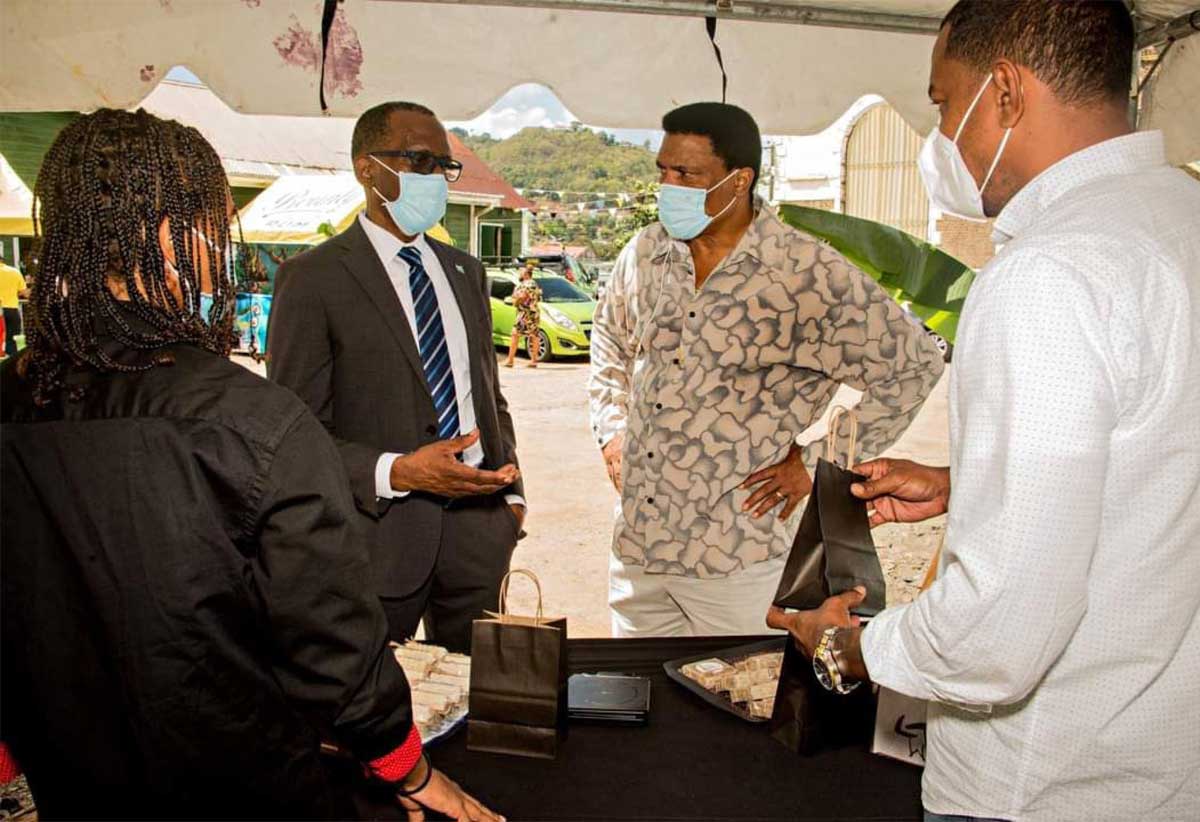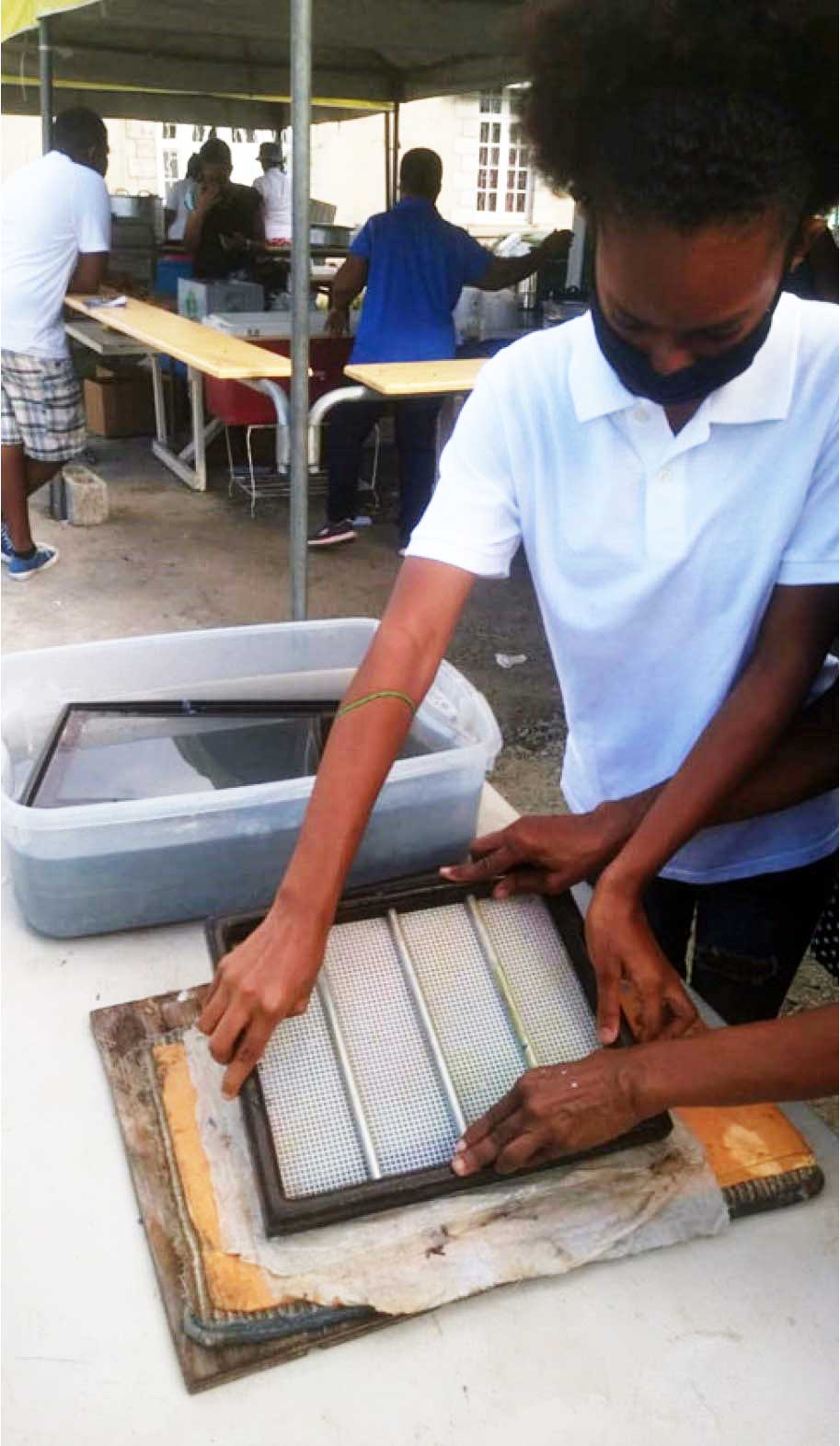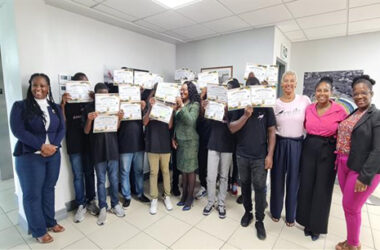There has been an overwhelming response of endorsement and support from the public and corporate sectors towards the initial staging of Saint Lucia’s first-ever ‘Banana Festival’ as part of the island’s 43rd Independence celebration of activities.

And while hailing the success of the event, the main organisers– the Holy Trinity Anglican Church – are hopeful that this venture can evoke a new beginning and a ‘ray of hope’ for brighter socio-economic prospects in the local banana industry. The festival also allowed the La Caye, Dennery congregation and the Anglican Mothers Union members to utilize the event as a fundraiser.
But most importantly, the Banana Festival has provided a platform for discussion on the nutritional and socio-economic value of the crop and to highlight the benefits of the industry to the younger generation.
“When we conceptualized this project, it was done against the backdrop of our planning at the church for a program for the year. The Mother’s Union was already planning their fund-raising programme and we thought we should broaden the scope to embrace significantly, a banana festival,” David Jordan, a member of the Strategic Management Committee and Chairman of FRIEETAD in the OECS Inc. told The VOICE. The other two members are Archdeacon Glasgow and Cecil Charles.
According to Jordan, the group recognized the potential of such an event and that it “would be highlighting to the policymakers, areas that needed to be addressed within the context of the banana as an industry.”
He added: “We also recognized that banana has a nutritional value. It has been a traditional staple food for our people in this part of the world.”
The event, which was held over three days from February 20th to 22nd at the Anglican Church Annex along Trinity Church Road, received corporate support from Independence Celebrations Committee and four major manufacturers: Baron Foods, Viking Traders, Saint Lucia Distillers and Unicomer Courts Ready Cash.
In addition, the St Lucia Marketing Board (SLMB) and Massy, have partnered with Chef Orlando and the Holy Trinity Anglican Church to host the cooking demonstrations.
Jordan, an International Trade economist, formerly employed within the Ministry of Trade spoke of the success and the declining fortunes of the banana industry, since it was set up as a replacement crop, post the sugar cane era. Some of this was also featured on video presentations at the exhibition.
He referred to that phase as a ‘demise of decline’ and says that now “there should be a focus on how we resuscitate the industry …while dealing with issues such as food security, climate change; we know there is a stable industry that needs to be resuscitated both for the importance of its nutritional value and to the economic growth or its contribution to GDP.”
Jordan noted that though important, the group’s focus is targeted more towards the policymakers; “It is more selectively focusing on the young people, who probably would not have had that type of relation of focus as an industry that they would be familiar with, both in terms of its evolution and not even what’s happening currently.”
Undertaking the magnitude of such a project in this current global context, there is the sense of an underlying sustainable development / socio-economic pitch to this venture.
Said Jordan, “I believe that having undertaken this exercise, which is out of a programme, we do hope to have it repeated … bearing in mind that it is within the mandate and mission of the Anglican Church and it also fits within the responsibility of the church to look after the integrity of the earth, in reference to the church’s 5th Marks of Mission,” declared Jordan.
He added that “A project of such magnitude has its socio-economic impact as it relates to a sensitization to the importance of livelihoods that could be generated within the industry …as we focus on the various sub-industries and bi-products.”
Jordan is adamant that this project will be sustained and will extend to other food festivals “and we have on our agenda… three of them.”
How well was the exhibition presented, and did the work involve advisory from resource personnel within the Anglican congregation and from other sources?
He said the group attempted to “examine resources from within the Anglican community and was not adverse to new ideas, roping in additional resources and expertise outside of the community of the Anglican Church.”
While noting that the group welcomes partnership and participation from other entities, the underlying message from Jordan is that “there is sensitization towards the policymakers, sensitization towards the young people and that is where we know that this programme could be sustained whilst the policymaking and policymakers are looking for solutions to improve the productivity of the sector.”
In retrospect, Jordan explains that a church service was held to start off the festival and that the event was “well patronized”.
He said the event was well attended and supported by the public and “we had pretty good traffic”. Students from neighbouring schools in the city also showed up at the event.

The event was featured as part of the calendar of events and programming for the Holy Trinity Anglican Church and the private sector. A variety of ‘choice offerings’ were on display and this included cooking demonstrations and critical support from some of the leading cottage-type industries, such as Lucian Xpression, Rosemond Homemade Wines, Vel Multi-Service Ltd Wines, My Rose Creole Delights, Tea-Garden758, Nature’s Way, Monrose Distribution and several other artisans.
The items on display at the exhibition included banana bi-products such as ketchup, chips, jams, jellies, soap, teas, wines, banana paper and crafts. Research has proven there are well over 28 uses of the banana plant.
The three-day event also witnessed the attendance of respective government ministers and personnel, as well as a delegation from the Taiwanese Embassy.
Another interesting component of the exhibition involved food demonstrations by Chef Orlando and other displays by Lucian Xpressions, highlighting the production of banana paper which can be generated from the banana stem. A Combined Schools choir and Vide-Bouteille School drummers also performed on the Monday.
Summing up the organisation of the event, Jordan asserted: “What we tried to portray through the festival …is the evolution of the banana industry and what is happening currently, in terms of the input of the Taiwanese looking at what they’re trying to do with tissue culture ….and all the impact of the resuscitation of the banana industry and the search for getting a variety that is more resilient to diseases.”
Citing the significance of the nutritional value of the banana and the industries that could be developed from the industry to provide livelihoods, Jordan adds that with a focus on these two factors “you are now looking at the sustainability of local consumption and increased production for export.”
He added that the long term strategy should “sensitize the policy makers and share this information with young people …so they may have different approaches, in terms of modern technology in dealing with the sector.”





